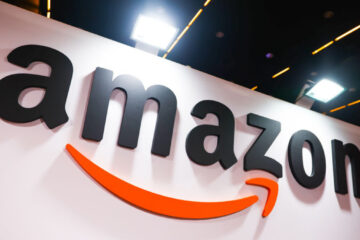Amazon unveiled a new set of eyes and ears for your home at its fall hardware event this week.
With all the changes going on in the world, it’s no surprise that many people still don’t trust new technology.
Nearly half of Baby Boomers (47%) are very concerned about data privacy on their mobile phones, according to recent survey data. Compare that to just 28% of Gen Z and it’s clear to see that some things never change.
But the Boomers may have the right idea on this one.
Amazon just unveiled a new suite of products as it works to become more ubiquitous in our day-to-day lives. Here’s a look at a couple of the more invasive devices Amazon rolled out at its fall hardware event Wednesday.
Amazon Fire TV Omni QLED Series
The new Amazon smart television is relatively cheap. For about $500 you can get a 55-inch television that promises to have better resolution and a sharper picture than the previous generation.
It also comes a sensor that detects when someone has entered its vicinity.
“When a person enters the room… [the TV] switches to the beautiful and informative Ambient Experience,” said Amazon’s press release.
Since you can also link your Fire TV to an Alexa home speaker, you may not even have to tell Alexa you’re home anymore since the TV can do the job.
Amazon says that the presence sensors “simply detect motion” and while the television also has a microphone, there is an microphone off switch that electronically disconnects them.
Ring Spotlight Cam Pro
Ring is also part of Amazon’s smart home division.
The doorbell camera company has revolutionized the home-monitoring industry by linking a live camera to users mobile phones.
The new Spotlight Cam Pro has 3D motion detection and an option for a battery and plug in setup ($230), as well as a solar power setup ($250).
The security issues with Ring cameras have been well documented and cybersecurity companies warn about the device’s vulnerabilities.
“Ring system security issues have often made headlines. While some have been addressed and eventually resolved, Ring doorbell security issues are still high, especially since they’re not encrypted,” VPN software company NordVPN said.
Amazon says that privacy and security are “foundational” to Ring’s product designs and touts the fact that “we were first in the smart home industry to make two-step verification mandatory for our customers.” The company also says it was the first to launch video end-to-end encryption last year.
Are Consumers Really Concerned?
While survey data suggests that Gen Z consumers care about data privacy issues a lot, it also says they are willing to share their data for a price.
The 200 Cornell Gen Z students born in or after 1995 who responded to the survey were very willing to share gender, name, and age information, but were more cautious about their social media accounts and GPS locations, according to the study.
But when offered a $15 reward, 11% are more likely to share low-privacy info (age, gender, name), 27% more likely to share medium-privacy info (shopping history, biometrics, income), and 24% more likely to share high-privacy info (GPS location, social security number, medical records), according to a Freedom Pay survey.
“Privacy and security are foundational to how we design and deliver every device, feature, and experience—and you can see that in all of the new devices and services announced. We work every day to keep customer information safe, provide transparency, and put customers in control,” an Amazon spokesperson said.
On Sept. 29, Amazon’s pending $1.7 billion acquisition of iRobot, the company that makes the Roomba cleaning robot, faced a new round of scrutiny from Democrats in both the Senate and House of Representatives.
A group of lawmakers led by Sen. Elizabeth Warren (MA) sent a letter to the Federal Trade Commission, asking the institution to reject the bid with the letter accusing Amazon of “leveraging its massive market share and access to capital to buy or suppress popular products,” Axios reported.
But there have also been privacy concerns about the deal, leading iRobot CEO Colin Angle to author a LinkedIn blog in August saying that the company would never sell customer data to a third party.
But as RobotReport pointed out, the company would be iRobot’s owner under Amazon, not a third party entity. The company could just share the data.


